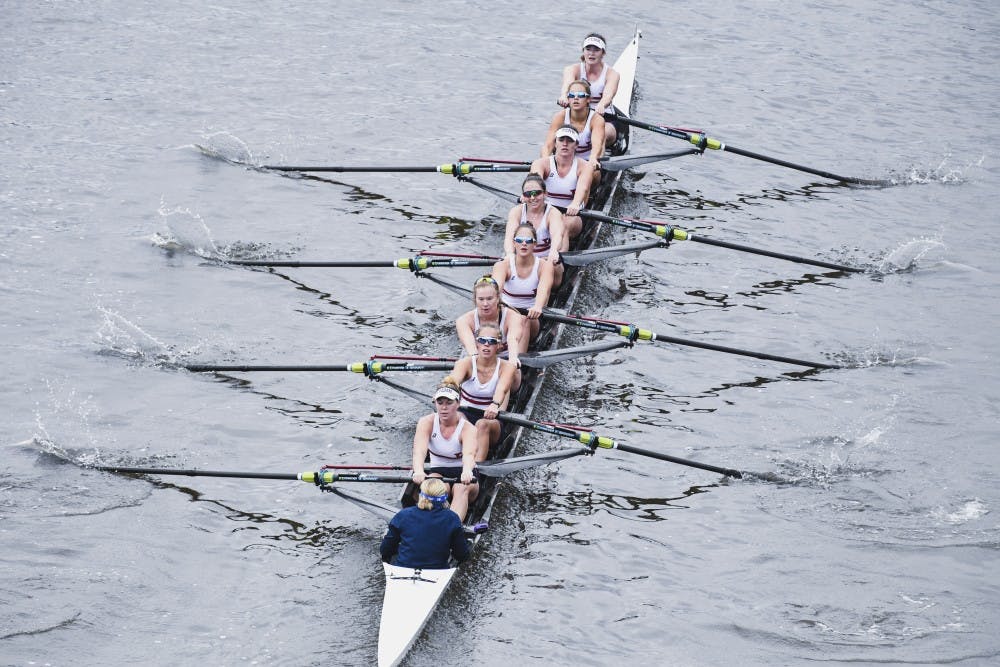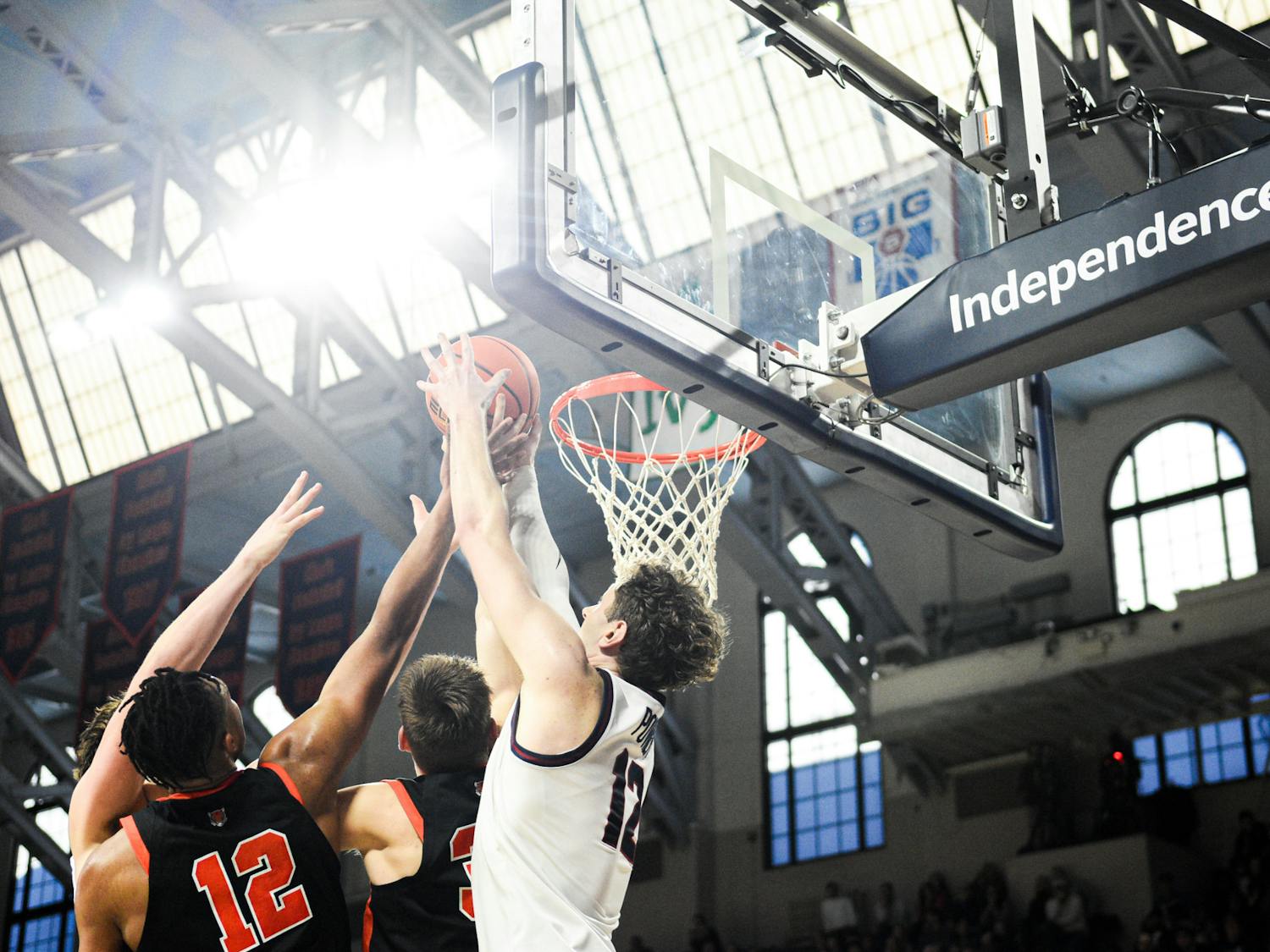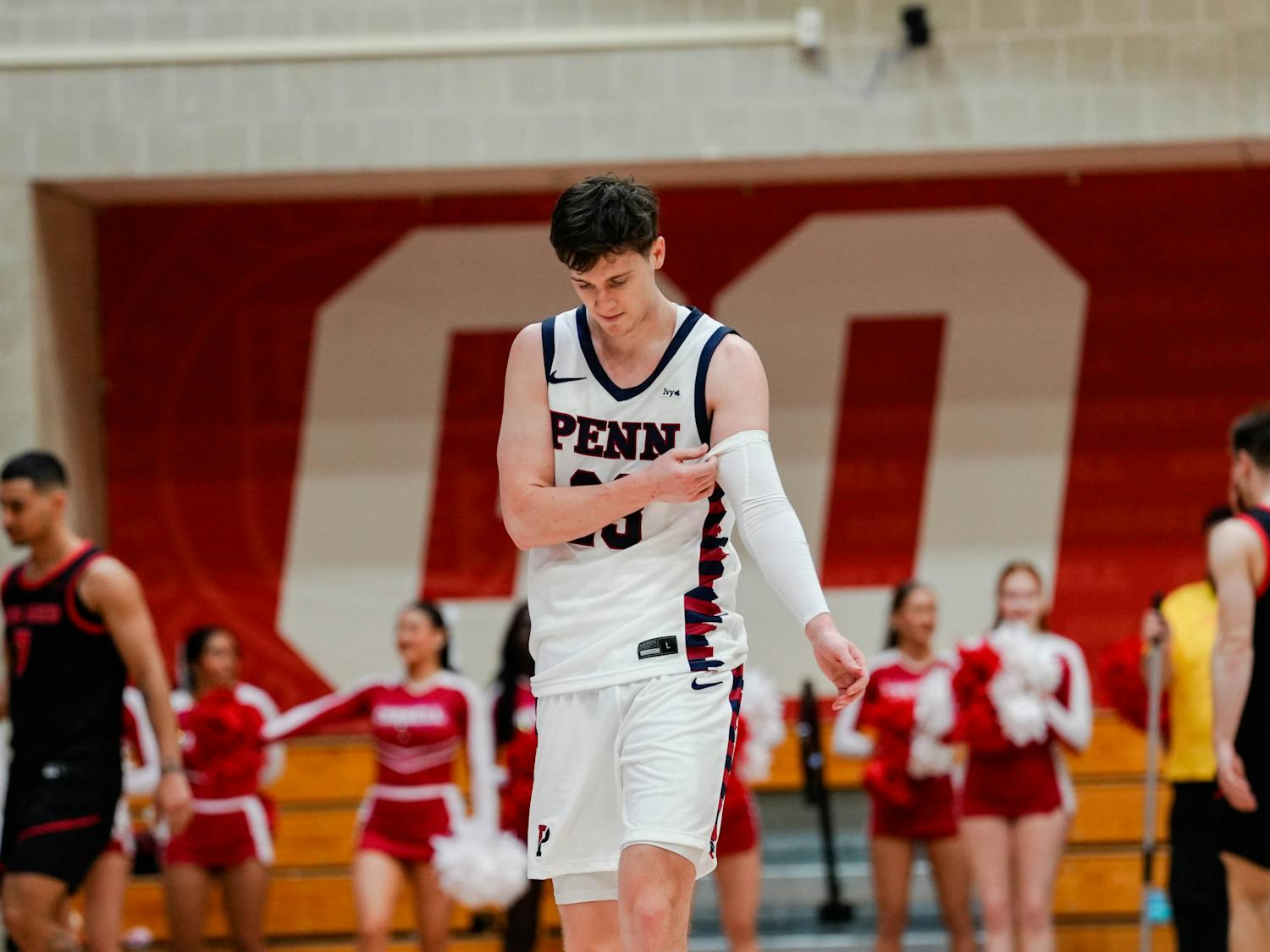Rowing for your national team signifies the highest level of competition and is the ultimate honor for many athletes. However, for Penn rowing, competing on a national team is not only a badge of honor, but also what influences the next chapter of the program’s history.
There are currently six Penn rowers who have represented their national teams: sophomores Jess Mixon, who is also a DP staffer, and Leila Ashtaryeh on the women's team, junior Bart Roovers and freshman Kristopher Schumann on the men's heavyweight team, and sophomore Thomas Hogeboom and freshman Aleksandar Izda on the men's lightweight team.
As the Quakers look to improve their program on both the men’s and women’s sides, these nationally recognized rowers can help elevate the teams to the next level and give them a competitive edge.
A native of Osprey, Fla., Schumann rowed for the United States Junior National Team in both 2017 and 2018. Being on the team gave him the opportunity to help the Penn heavyweights raise their expectations.
“I think my knowledge of the requirements of elite level rowing can really contribute to conversations of setting goals for ourselves and what it’s going to take for our team to top the rankings," Schumann said.
Schumann also believes that his unique experience gives him a confidence and work ethic that sets an example for the rest of the boat, especially as a rookie.
“While there are plenty of guys on the team way more talented than me who haven’t participated on a national team, I think my exposure to high-intensity and high-stakes racing really gives the rest of our boat relaxation," he said.
The extensive training that Schumann took part in to prepare for the World Championship makes waking up at 6 a.m. and rowing on the Schuylkill River seem like no big deal. As a result, he feels he can be a motivator to some of the athletes who have yet to see this intense type of training.
RELATED:
Penn men's lightweight and heavyweight rowing come up short in weekend races
How do you study teamwork? For senior Ryan Leone, you measure brainwaves.

“I think this is important for those 6 a.m. practices when we have a hard workout and some guys are thinking, 'This is pointless,' or 'Why am I here right now?'" Schumann said. “To a guy who’s trained three times a day for 12 weeks leading up to a World Championship, this session really just seems like another workout you have to pull your hardest on. This casual and stress-free aspect really attributes to leading the charge on race day.”
Ashtaryeh has represented her home country of Canada on the U-19 Junior National Team. Originally from Toronto, Ashtaryeh says that the national team gave her an opportunity to prepare for college rowing in the United States.
“My high school team wasn’t very intense, so I didn’t know what it was like to work that hard, she said. “[The national team] was one of the most grueling experiences of my life, but [it] taught me a lot. … It showed me what other girls my age are capable of. The girls in my boat were extremely talented, and I definitely looked up to them.”
When Ashtaryeh first got to Penn, her teammates looked up to her and respected her because of her experience. More importantly, however, Ashtaryeh mentions the critical role that her fellow national team members have had on her own experience at Penn and on the program as a whole.
When Ashtaryeh was a freshman, the senior captains on Penn’s team were also members of the U.S. U-23 team and are currently pursuing spots on the Senior National Team. This set an example for the rest of Penn's rowers and pushed the boats to be even faster.
“Regina [Salmons] is a really sweet person but could be really intense at practice, just because she cared so much," Ashtaryeh said. “This was admirable, impressive, and a little intimidating as a freshman."
Do Penn rowing's national team athletes signal a brighter future for the program? Only time will tell.









